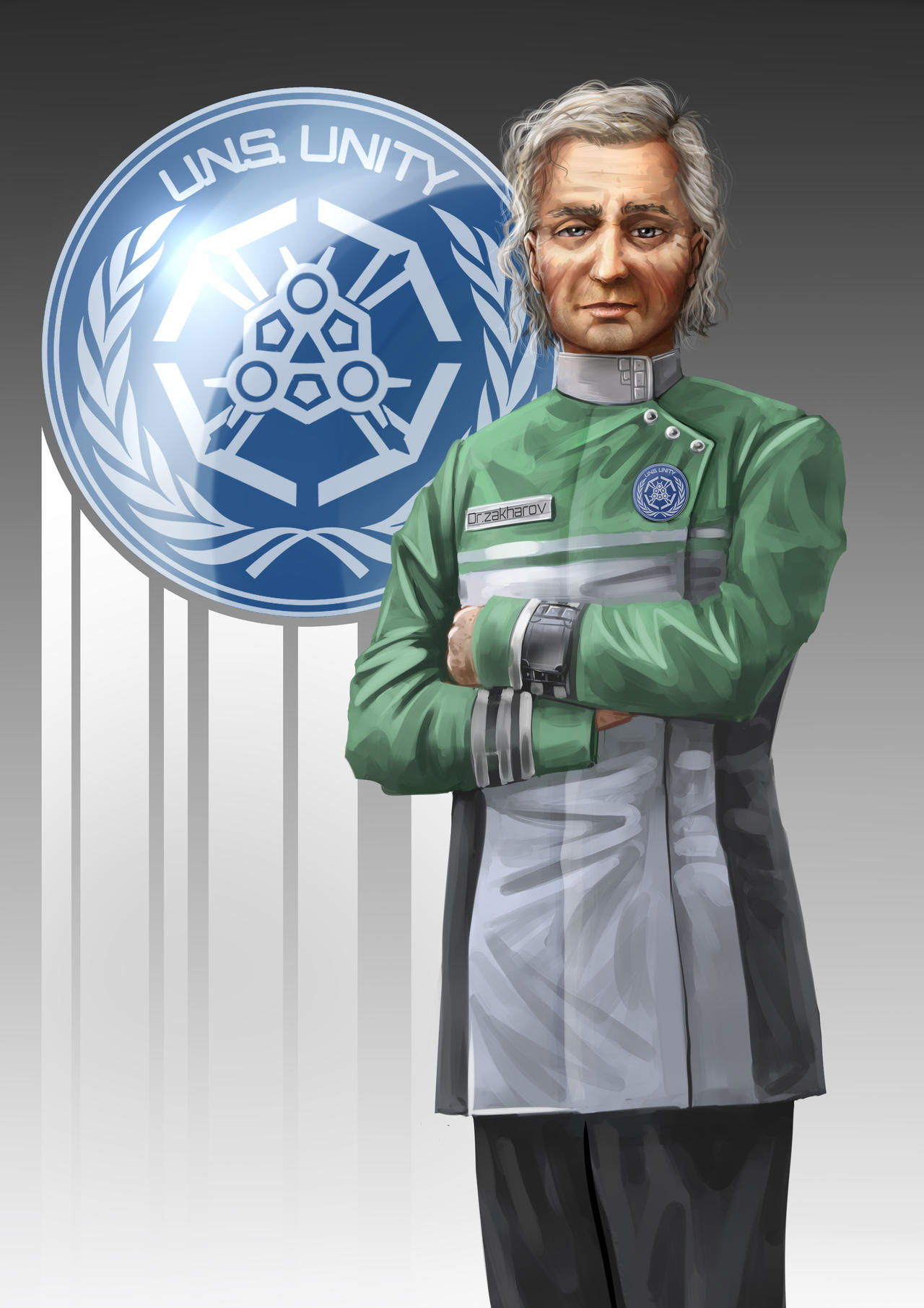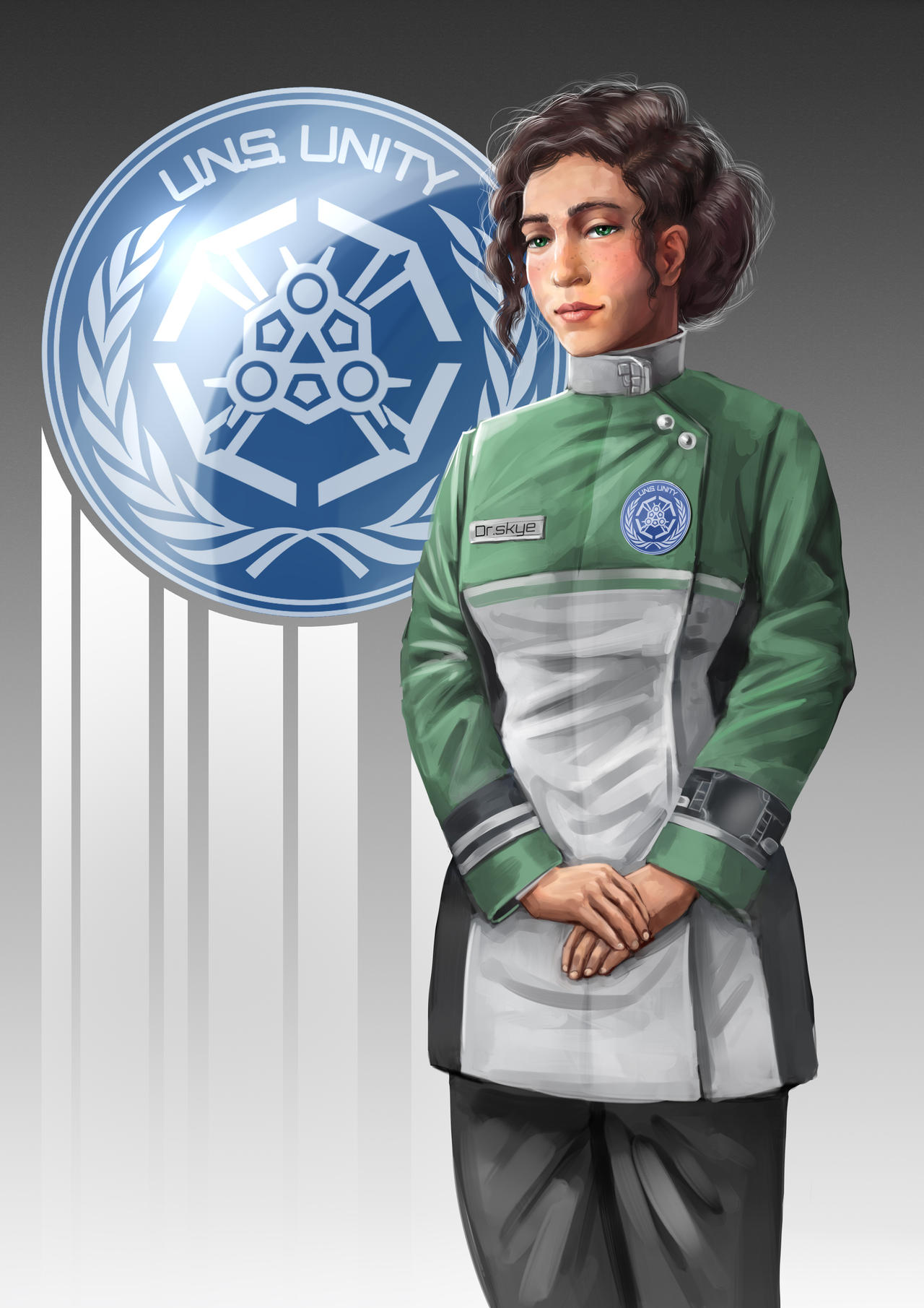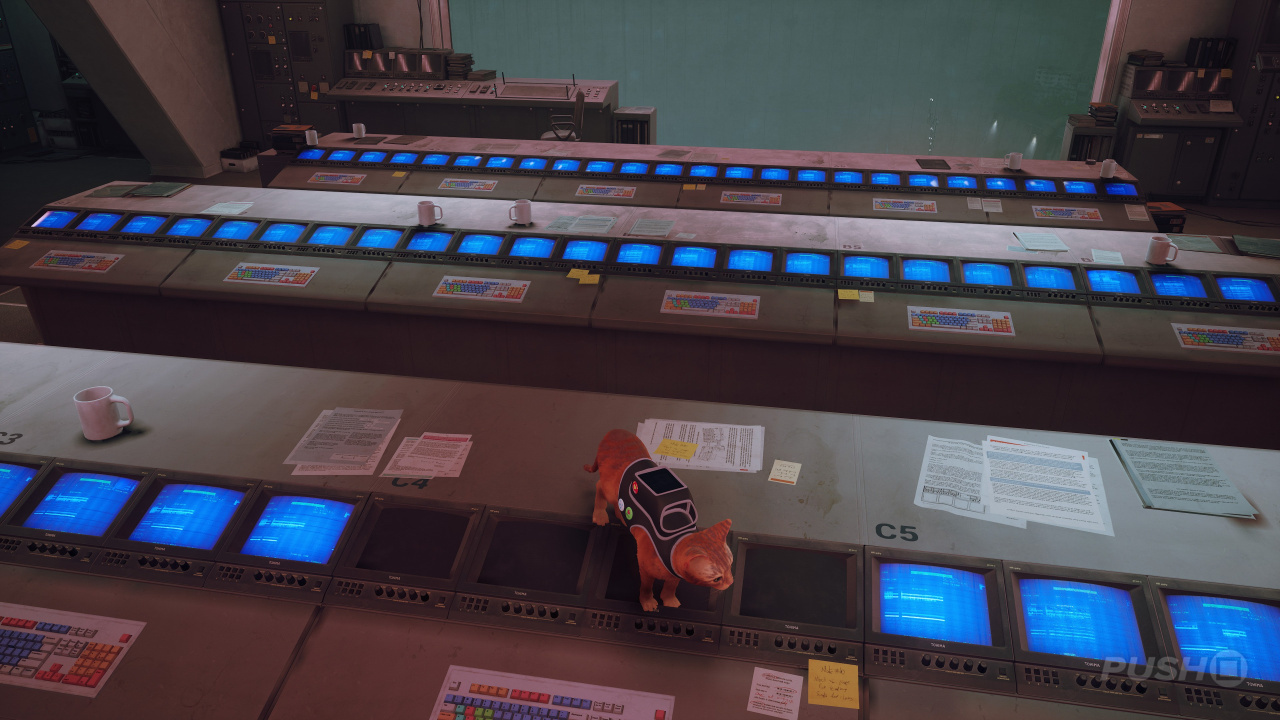Inspired by Strategos' Risk, let's talk about the ideologies of the different factions that comprise this telling of the SMAC story.
As I've explained previously, each faction leader propounds a philosophy answering three basic questions about life, the universe, and everything:
- What is the fundamental truth of the universe?
- Why did civilization on Earth fail?
- What is necessary to ensure the survival of the human species on Chiron?
The original factions collectively reflect the peculiar
zeitgeist of the 1990s, while their user-generated counterparts are more likely to tap into popular anxieties of the 1980s or 2000s. And I think it was blogger Nick Stipanovich who observed that every single one of them is an intellectual.
Factions are like water. When there are only seven on the narrative canvas, they spread until they have covered all conceivable intellectual ground. We know Zakharov will have something to say whenever science is in play. Deirdre would logically give the ecologist's perspective, & etc. Adding additional factions limits the unique intellectual space that the existing factions can stake out as their own.
So what do I want to say today?
Writing these factions is, of course, a challenge. Every faction leader has two dimensions. They articulate a specific ideology, and they are also individuals with their own idiosyncrasies. Sometimes, these clash. And often, we aren't even sure what those factions stand for, exactly. Most people would probably associate Morgan with free market capitalism, and they'd be correct that he is the "economics guy" most likely to engage with political economy theory day-to-day, but the lore tells us clearly that he is actually a monopolist. Zakharov should have the most to say about the potential pitfalls of bias, but if I remember correctly, the lore puts him forth as an unapologetic misogynist, and certainly a massive jerk.
Here are my thoughts about the different faction leaders presented in this story.
I invite you to grapple alongside me with these depictions.
Gaia's Stepdaughters
Lady Deirdre Skye is all about the idea that a feedback loop exists between the survivors and Planet. Her faction is the most likely to tread softly when it comes to living with the land. I expect the Stepdaughters will also be leaders of the pack when it comes to identifying the different ways in which Chironian organisms can benefit humans, if only because they will spend less energy on things like Terran
pseudoculture, a Gaian loanword I'll use to describe attempts to grow Terran crops in Chironian soil (and now an early
Unity Tech). Deirdre is avoidant, and her faction has become reclusive because of it. She is also potentially vulnerable to charges of misandry. Deirdre believes that the patriarchy poisoned the Earth and that its legacy must be comprehensively dismantled on Planet in order to save both humanity and its new home world from destruction.
The University of Planet
Academician Prokhor Zakharov stands for the use of tools. In his view, our species had already devised appropriate solutions to famine, disease, and climatological crisis. The problem, in his view, was scrupulous deference to fear of the unknown. To Zakharov, the sublimest act is to catalogue. He means to learn Planet empirically. Zakharov's chief character trait is hubris. The problem we have is that Zakharov steps all over the toes of the other "science" factions, the Human Ascendancy and the Children of the Atom, although I suppose the University's social organization is distinct to them. His faction really has two faces. The students are rowdy with youth and undigested discovery, his "establishment" preoccupied with being the "adults" in the room.
The Dynamic Enterprise (a.k.a. Morgan Industries)
CEO Nwabudike Morgan believes that wealth is the pathway to power. We didn't
kill the Earth, we merely used it, just as we will use Chiron. There isn't anything to
change. I think this actually works better when we're sitting at the "End of History" and there's a McDonalds at the end of every block, a Lexus in every driveway. That is to say, a lot's changed since 1999. But the idea that "There is no war in Ba Sing Se" is still intriguing. Morgan's people are nostalgic and pleasure-seeking and (one assumes) as unfreighted by worries about the future as he can make them, just like Americans were back in 1999, but I think Morgan himself is motivated principally by a determination never again to be cold, hungry, or at the mercy of others. Morgan, to me, is the kind of person who insists on capitalism because it is a game he has never lost. As soon as a competitor emerges, Morgan abandons all principle. Morgan gives us a lot of space, I think, to explore the life of the common laborer on Planet. If this were a Western, he would be our railroad--a kingdom as much as a corporation, with all sorts of downstream implications that, for Morgan, are utterly secondary to the question of whether he is being made rich in the offing. The lore says that money is just one of the currencies in which he deals, so he is certainly no stranger to politics. I think it is best, though, if his default solutions to any problem are fairly predictable: buyouts, bribery, rule-making, and contract thuggery. Morganite bases by definition must be emporiums of delight--tantalizing to the senses and fatal to conventional notions of morality. In my view, Morgan's quotations suggest a flippant man convinced he has something useful to bequeath the rest of us--closer in spirit to Elon Musk than, say, just-ousted Disney CEO Bob Chapek, the epitome of an
unhappy warrior. Together, Morgan and Zakharov are our Icari, flying too close to the sun in their pride. Morgan's impishness honestly makes it hard for me to see why I'd want to trust him with my company. The man seems like he can't resist giving the dragon's tail a good yank--hardly the kind of sobriety we presumably seek from our money men. He actually fits much better the archetype of an Iron Man (or, as I've already said, a Musk)--the visionary who is tolerated because his genius is unsurpassed. But what genius, exactly, is that? Apple founder Steve Jobs at least seemed to have some path-breaking insights about how people wanted to interact with technology and how it should be marketed to them. His "genius" arose from his insight that you could
create demand by planting new ideas in people's heads. Walt Disney recognized that millions of people wanted to access nostalgia. If we may say anything about Musk, I supposed it would be that he has never seen a project he considers too big to tackle. I think we're supposed to conclude that Morgan's great contribution to the future is his recognition that energy can become the central element in all our lives, if only we can get enough synergy going between economics, science, and industry.
The Spartan Federation Whenever I sit down to tell her story, I cannot help but think that
Colonel Corazón Santiago got in over her head. She's the "army one," and it takes a well-educated reader to recognize that her faction might owe something to the right-wing radicalism of the early 1990s. My take on Santiago is that she thinks people simply lost the will to protect their rights. That's a big statement. What rights are we talking about? Under what circumstances would they need to be physically enforced? It's actually hard to imagine any of their fellow survivors marching up to a Spartan camp and trying to force them into an unequal treaty. (Vengeance is another matter.)
In my lore, Santiago never really gets her feet under her because she's at war straight out of the gate. We know every one of her people are soldiers who, if they wake up in-barracks, start the morning with calisthenics. We a lot of them believe that anyone who isn't carrying a gun is potential prey. For Spartans, if war is service, it is service primarily to the self. I haven't really done enough digging into the question of whether Santiago is going to make war all the time, and I know Strategos' Risk's reason for creating the Imperial Military Focus arose from his making that connection. There's a lot we don't really know about the Spartans. Does
everyone have a military rank? Are they a hierarchical society that spends all day playing soldier, or just the most ornery people on Planet? I think Santiago is certainly trying to form an army camp, while many of her subjects are just gun enthusiasts who just know that's the shortest route to a meal ticket. In the original game, the Spartans' excellence at war leads to conquest, but I could see Santiago being a reasonably good neighbor if ever she got her own house in order. I think, for her, the idea is to be ready. She'll fight her corner, and will probably be pessimistic about the motivations of others (meaning she'd have a lower threshold to reach before authorizing preemptive violence), but I don't think she's looking for trouble to a greater extent than any other leader.
Santiago is clearly estranged from power structures. She wouldn't trust the Planetary Council as far as she could throw it, even if she were charting a more isolationist policy. Both she and her people are prone to conspiratorial thinking, too long divorced from power to have realistic understandings about how it is used, much less of the limitations inherent to all decision-making.
The Human Labyrinth (a.k.a. The Human Hive)
Chairman Sheng-ji Yang thinks some people are fit to rule, others to be led. And his conclusion is that, for the species to survive, the fit must force themselves upon the unfit. Yang would say that democracy just doesn't work: people aren't willing to do the hard things. (In this, he agrees with Zakharov, Santiago, Marsh, and St. Germaine.) To give him at least the courage of his supposed convictions, I have assumed that Yang actually insists that leaders demonstrate and
hone their fitness over time. Yang is
indifferent to morality, but I don't think he is profligate with lives. He is hard but not cruel. People are tools that make noises if squeezed too hard.
Yang of course has a clear flaw. We know from world history and probably individual experience: people who are scared and unhappy are not productive, creative, or manageable. I guess the way Yang gets around this is by insisting that he can't possibly manage in a way that meets everyone's need, so he treats his society like a system: he strives to get an average value from every part, replaces them as necessary, and stays within tolerances without getting caught up in the fruitless pursuit of optimums.
The Lord's Conclave (a.k.a The Lord's Believers)
Sister Miriam Godwinson believes that a turn away from righteousness destroyed the Earth. This is not quite the same thing as the abandonment of a particular faith tradition. While I have no doubt that Godwinson is comfortable asserting an explicit morality, my version would trace this morality back to self-evident Natural Law.
Just how Miriam interprets that Law is the rub. I'm given over to thinking she would actually cite history, not one specific religious text, to bolster her conclusions. This creates an obvious problem: to everyone but herself, Miriam is presenting as a prophet in the Old Testament style--a person who is literally speaking what they claim is the will of God.
Irrespective of whether Miriam's take is a popular one amongst people looking to dedicate themselves to service of the Lord, I think it would attract a very large number of followers who are merely "adjacent" to her belief structure.
In my view, organized religion can be a powerful force for good and for evil, and I think certain religious interpretations are actually popular with certain audiences
because of the penalties they impose on designated out-groups.
St. Germaine also says a bit about God, and his vision is very much in the tradition of propping up the temporal powers that be, such as by vesting men with certain authorities over their households.
The Peacekeeping Forces
Commissioner Pravin Lal needs a lot of work. I think I need to reorient him from the "information freedoms" guy to the
democracy guy. I think Lal must feel that despotism created circumstances incompatible with successful policy-making.
The Peacekeepers create a modern technocratic republic on Planet, and while Lal wrestles with what faction security means in that context, he believes honestly in transparency, self-determination, and respect for differences of opinion.
There are a lot of leaders in this particular telling of SMAC that also want to lead the weak. Let's examine how they
differ.
- Yang, Santiago, and Marsh all believe that a lack of willingness to struggle essentially amounted to planetary suicide. For Yang, the root cause was an obsession with participatory self-government. Marsh and Santiago feel it was timidness of spirit.
- Like Yang, St. Germaine believes (most) people are incapable of self-rule, which is why both men practice a form of despotism. However, St. Germaine holds that people desire stern leadership. In St. Germaine's retelling of Earth's demise, the problem was selection of the wrong despot.
- Both Marsh and Santiago want to promote physical excellence, but Santiago sees war as the acme of human endeavor, while Marsh believes that sport must take a central place. Santiago insists that everyone must prepare for war, while Marsh comes closer to your high school coach venting his spleen on hapless intramuralists who would rather be playing a video game. The difference, if you will, between people with a "Come and take it" sticker on the rear bumper of their pickup truck and those who slap "All who wander are not lost" next to the National Park badges on the hatch of their Subaru. Santiago is much quicker to lash out when angry. Marsh is about the experience of the outdoors and testing the self against nature. Santiago is about putting on a uniform and fighting against long odds.
- "Joiner" Banes shares some of St. Germaine's skepticism with the forms of democratic government, but I think the former is actually closer to Miriam in that he comfortably substitutes his personal sense of right and wrong in place of any consensus document. St. Germaine thinks democracy needs guard rails. Banes just thinks it requires a little "offensive" help from time to time. St. Germaine wants to avoid sharing bad news; Banes wants to take action to ensure that the news is less bad. Cobb was fascinated by the idea that the course of human history could be changed by discovering the source of humanity's self-destructive impulse, but lacked the self-discipline to take his experiments very far. Banes is more interested in how the toolkit Cobb left behind can enable him to save humanity. To understand the problem that Banes represents, look at the central problem behind DC graphic novel Kingdom Come: do superheroes disempower normal people? Banes represents this idea of the self-appointed hero. So far, in past fiction, I have been putting forth Lal in that role. Lal has begun to suspect he might require some kind of oversight to legitimize what he thinks he must do. Banes doesn't bother. St. Germaine thinks men need a father figure; Banes thinks they need a guardian angel. For St. Germaine, playing his role is fun, and everyone must participate. Banes is perfectly content to manage from behind the scenes.
More than one society puts science front-and-center.
- I think the greatest distinction between Zakharov and Tamineh Pahlavi is that the ex-Soviet scientist is motivated by curiosity, and Pahlavi by fear. Pahlavi is trying to correct aspects of humanity that cause her distress--aging, infirmity, imperfection--by using science as a shield, while Zakharov is using it more like a chainsaw. In this, Zakharov is actually almost perfectly aligned with Aleigha Cohen, although in her case, the motivation is boundary manipulation for its own sake, not genuine curiosity.
- Anhaldt's central conceit is his lack of trust in human faculties, which is a much stronger instantiation of what drives Pahlavi. As a result, Anhaldt has convinced himself and others that their lives are better off in the hands of machines. Over time, this belief is reinforced by the use of those machines to organize information in counter-intuitive ways.
Several societies deal with the problem of information.
- Lal, Metrion, and Zakharov probably preside over the most open of the human societies on Planet. Lal is concerned that proper government can't be done in the dark. Zakharov, with a handful of exceptions for his most controversial research, essentially accepts that data must be shared to be properly mined for insights. Metrion is convinced that the legacy of Earth lies in the thought it has produced. (This sets him apart from Nagao, for whom Earth is mostly a specific location, or St. Germaine, for whom the past is comforting myth.)



